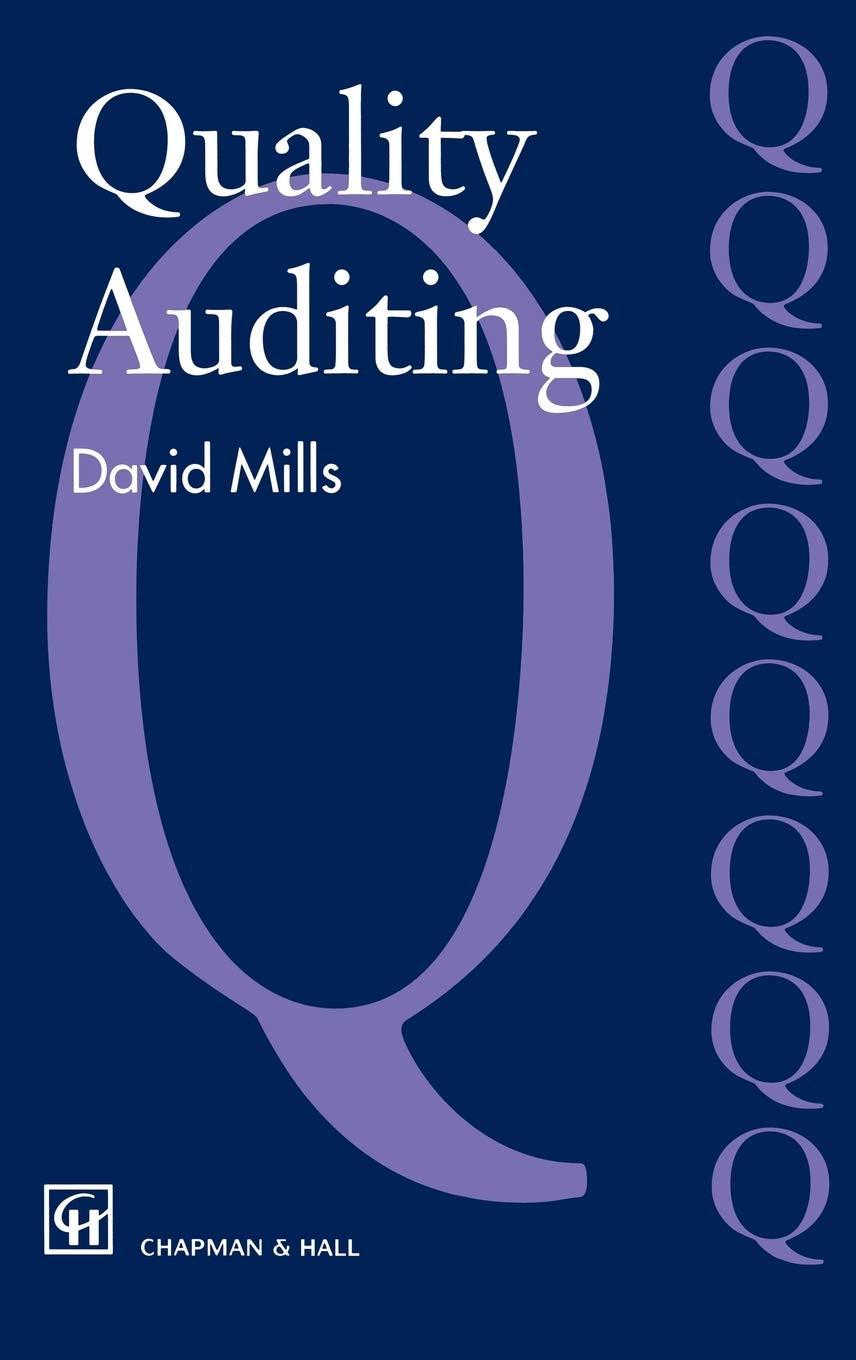Question
At the beginning of 2011, the Healthy Life Food Company purchased equipment for $42 million to be used in the manufacture of a new line
At the beginning of 2011, the Healthy Life Food Company purchased equipment for $42 million to be used in the manufacture of a new line of gourmet frozen foods. The equipment was estimated to have a 10-year service life and no residual value. The straight-line depreciation method was used to measure depreciation for 2011 and 2012.
Late in 2013, it became apparent that sales of the new frozen food line were significantly below expectations. The company decided to continue production for two more years (2014 and 2015) and then discontinue the line. At that time, the equipment will be sold for minimal scrap values.
The controller, Heather Meyer, was asked by Harvey Dent, the company's chief executive officer (CEO), to determine the appropriate treatment of the change in service life of the equipment. Heather determined that there has been an impairment of value requiring an immediate write-down of the equipment of $12,900,000. The remaining book value would then be depreciated over the equipment's revised service life.
The CEO does not like Heather's conclusion because of the effect it would have on 2013 income. Looks like a simple revision in service life from 10 years to 5 years to me, Dent concluded. Let's go with it that way, Heather.
What is the difference in before-tax income between the CEO's and Heather's treatment of the situation?
Discuss Heather Meyer's ethical dilemma. Do you agree with the ethical perspectives of your classmates? What implications could this have on future Healthy Life Food Company dealings?
Step by Step Solution
There are 3 Steps involved in it
Step: 1

Get Instant Access to Expert-Tailored Solutions
See step-by-step solutions with expert insights and AI powered tools for academic success
Step: 2

Step: 3

Ace Your Homework with AI
Get the answers you need in no time with our AI-driven, step-by-step assistance
Get Started


